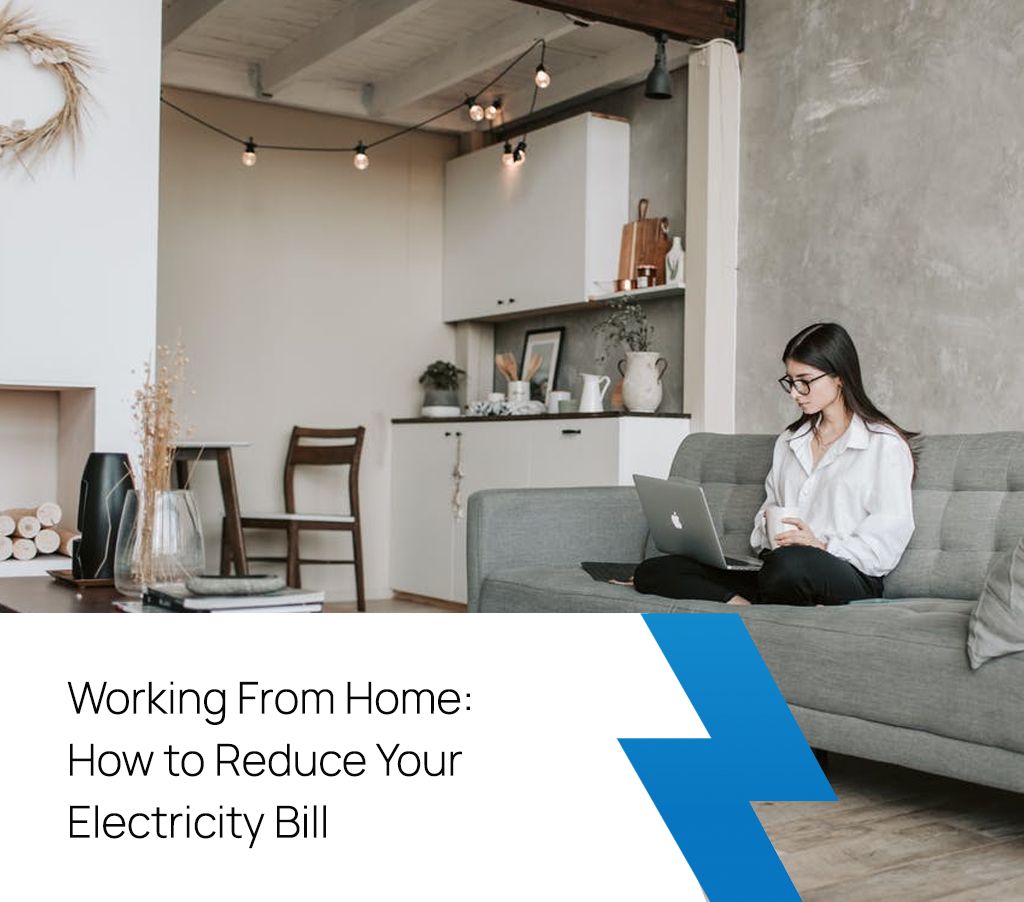With the COVD-19 pandemic affecting Australians, and people globally, many companies have no choice but to instruct their workforce to work from home. Additionally, freelancers and self-employed persons also work from home, and all need electricity to carry out their business. Now more than ever it’s important to look at how to reduce your electricity bill.
However, while working from home has incredible flexibility benefits, it can increase your electricity bill significantly. For the approximately one million Australians who work from home, and the many who work from home due to the Coronavirus pandemic, it’s essential to control energy costs to keep within their budgets.
Here, we look at which appliances draw the most power, and simple tips to reduce your electricity bill, and help you run a more energy-efficient home.
Which Electrical Appliances Use the Most Power?
Electrical appliances are not all the same in their use of electricity with some drawing more power than others. Some main culprits include:
- Air conditioners
- Computers
- Electrical heaters
- Electric cookers and ovens
- Hot water systems
- Lighting
- Phones
- Printers and scanners
If you have these appliances in the home, limit their use to save as much as possible and reduce your electricity bill.
5 Handy Tips to Reduce Your Electricity Bill at Home
Apply these five energy-saving tips when working from home to see your electricity bill go down month on month:
1. Power down all electronics when not in use
When you’ve finished work, ensure that you switch off your electronics completely to cut your energy use by over 60%. Computers, tablets, TVs, and phone chargers, drain power considerably when left on so it is always advisable to switch them off from the outlet when not in use.
Other practical tips you can apply to help reduce electronics power usage include:
- Setting your electronics to ‘Power-Saving Mode’ after 15 – 20 minutes of inactivity.
- Turning off programs such as Wi-Fi and Bluetooth when not in use
- Using a power board to limit standby power usage.
- Using the ‘Hibernate’ instead of ‘Sleep’ mode.
2. Complement your electricity needs with solar and gas
If you’re working from home for the foreseeable future, there are alternative energy sources you can use to help reduce your electricity bill.
For instance, choosing to install a solar water heater can reduce your water heating costs by up to 80% compared to electric or gas water heaters. You can also opt to cook with LPG or piped gas instead of electric cooktops to save you up to 30% on monthly energy costs.
3. Use LED lighting
Light Emitting Diode or LED bulbs are up to 80% more efficient than traditional incandescent and fluorescent bulbs. 95% of the energy in LED bulbs is converted into light and only 5% leaks as heat.
Because of this, LED bulbs reduce your electricity bill by more than 50%, giving you significant monthly savings. Swap existing bulbs throughout your home for more efficient LED bulbs, and save on your monthly power usage.
4. Use temperature settings wisely
During the hotter months, it can be tempting to blast the air conditioner to cool down indoors. Similarly, when it’s colder, you could be putting up the heat too much without even knowing it.
You can use recommended temperature settings that will still cool you down and not raise the bill. Set air-conditioners at 24 – 25°C in summer and thermostats at 18 – 20°C during winter for the optimal power usage. You can also use portable fans for less power usage when it’s hot, and dress warmer in the colder months before turning on the heater.
Take further steps to insulate your windows, attics, and crawl spaces to stop heat or cool air from leaking from your home.
5. Go off-peak
Most electricity suppliers offer off-peak hours discounted rates to consumers at night and on weekends, as the electricity demand is lower during these times.
Residential areas may also have daytime off-peak hours, which could benefit those working from home. Check with your supplier the off-peak rates they offer, and when they apply to take advantage of them and save on your monthly energy costs.
These simple and easy-to-implement tips can help reduce the electricity bill and change your everyday habits, ensuring that working from home doesn’t cost you more than it needs to.
Bottom Line
Australia’s work landscape is changing rapidly with many solopreneurs, freelancers, and even salaried employees now working from home.
This change can drastically increase electricity bills, which could put a strain on household finances. However, by following simple energy-saving tips, you can reduce the electricity bill and remain within your monthly budget.
At Saunders Electrical Group, we help Sydney homeowners and renters install energy-efficient electrical appliances and systems that won’t raise your monthly energy costs. Contact our licensed electricians for an in-home assessment by filling out our online form or calling 1300 993 560 today.
